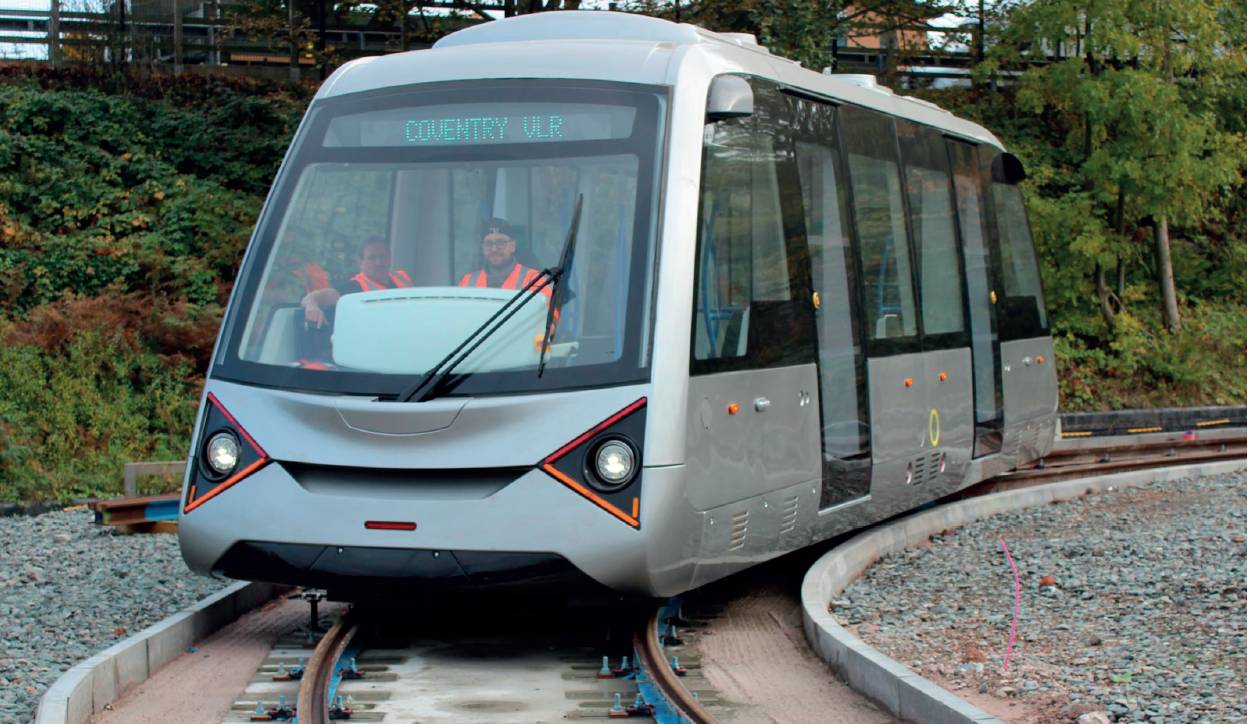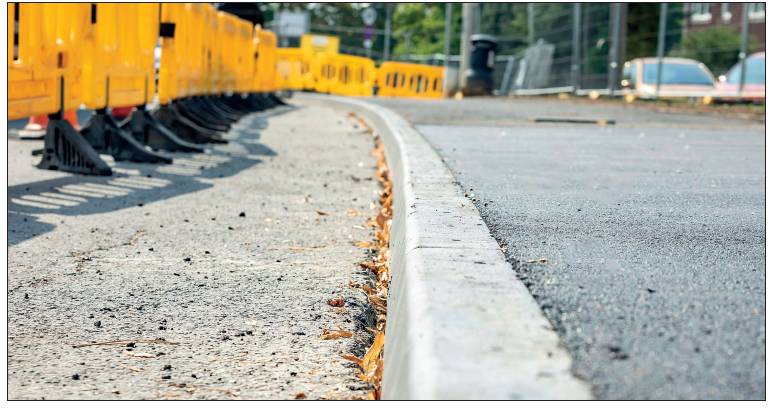New innovations that will transform your projects
Innovation News
RAIL
Coventry Very Light Rail track tested successfully

Coventry Very Light Rail (CVLR) has successfully run one of its vehicles on test track at the Very Light Rail National Innovation Centre in Dudley.
The rails are thinner than that used in existing light rail or tram systems and can be laid at a shallow 300mm into a road surface. This reduces the need to divert utilities which can add cost and time to light rail programmes. The track also includes time-saving features such as tighter curves.
The track slab was laid by Galliford Try.
Transport for West Midlands believes the successful test has proved the viability of the track’s design which will lead to faster, lower-cost construction. Coventry will be the UK’s first city to run the low-cost, battery-powered light rail line.
ENERGY
Solar farms in outer space are 'commercially viable'
University of Surrey and Swansea University researchers have concluded that solar farms can be operated in outer space. A joint six-year study found that it is viable to produce low-cost, lightweight solar panels capable of generating energy in space and providing commercially viable energy to electricity grids on Earth.
Swansea University developed the solar cells from cadmium telluride. They cover a larger area, are lighter and provide more power than existing technology.
The University of Surrey designed instruments that measured the cells’ performance in orbit.
ENERGY
Lower cost, more resilient turbine blade developed
A new tidal turbine blade that could reduce the cost of producing tidal power has been developed in Scotland.
FastBlade is a monolithic structure, eliminating weaker adhesive joints found in conventional blades. This makes it more resilient to tidal stream conditions.
The University of Edinburgh engineers who developed FastBlade believe the 3m long structure is lighter, slimmer and more cost-effective to make than comparable blades.
Four completed blades are undergoing sea trials in Langstone Harbour in southern England.
MATERIALS
Colas uses recycled polymer kerbs on Cheshire highways
 Colas and sustainable products innovator Dura Products have installed Durakerb recycled plastic kerbs on local highways across Chester and Cheshire West.
Colas and sustainable products innovator Dura Products have installed Durakerb recycled plastic kerbs on local highways across Chester and Cheshire West.
Durakerb is being rolled out in the region following a government mandate that regional public bodies must use sustainable construction principles.
The plastic kerbs are made from 88% recycled polymers and the 6kg units can be reclaimed, reused and recycled after use.
- More news newcivilengineer.com/innovative-thinking